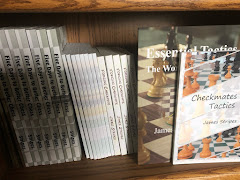"The Ten Greatest Masters in History" runs pages 57-61 in Chessworld, vol. 1, no. 1. Edward Winter reproduced the article in "Fischer's Views on Chess Masters" (updated 9 April 2011) at Chesshistory.com.
It appears that Fischer did not write the article, but expressed his views to Neil Hickey. On the first page of the article, under Fischer's name appear the words, "as told to Neil Hickey" (57).
Fischer observed that Wilhelm Steinitz revised the thinking of chess players concerning the power of the king. While he credits Steinitz as the father of the modern school, he offers disconnected thoughts that do not explain this term. From the power of the king, Fischer shifts to when attacks should begin, and then jumps to the need to hold pawns back.
He is the so-called father of the modern school of chess: before him, the King was considered a weak piece and players set out to attack the King directly. Steinitz claimed that the King was well able to take care of itself, and ought not to be attacked until one had some other positional advantage. Pawns ought to be left back, Steinitz claimed, since they can only move forward and can't retreat to protect the same ground again. (58)Much of Fischer's comments compare Steinitz to Paul Morphy, about whom he offers high praise.
Steinitz's book knowledge din't compare with Morphy's, and -- where Morphy was usually content to play a book line in the opening -- Steinitz was always looking for some completely original line. He was a man of great intellect -- an intellect often used wrongly. (59)
He understood more about the use of squares than did Morphy, and contributed a great deal more to chess theory. (59)












No comments:
Post a Comment